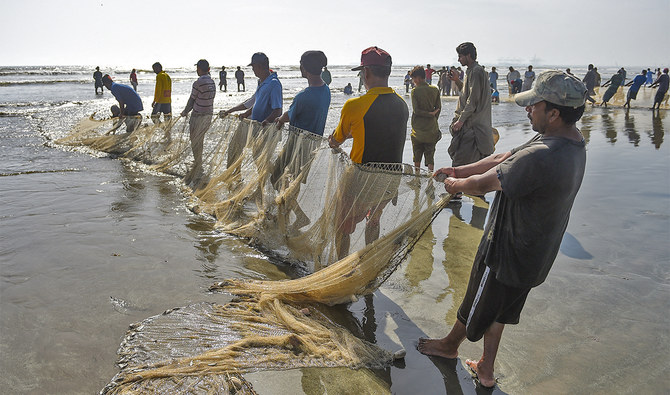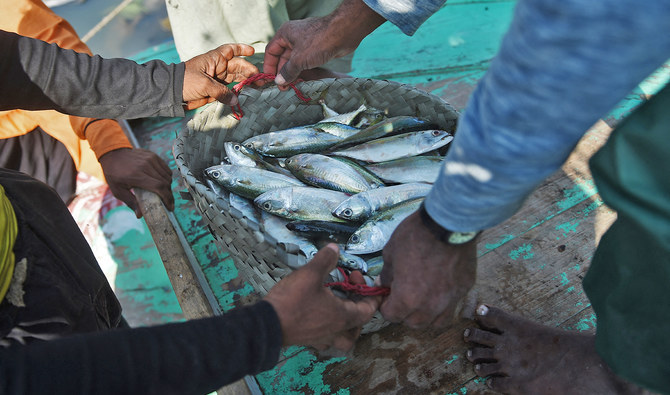KARACHI: When Muhammad Juman docked his boat at a fish harbor in southern Pakistan last week, never could he have imagined the precious cargo he had brought in from the deep sea.
The father of 14 from the small fishing village of Mirpur Sakro in Pakistan’s coastal Thatta district had caught a blackspotted croaker, known as Sua in the Sindhi language, a rare and highly prized delicacy in countries like Singapore, Malaysia, Indonesia, Hong Kong, China and Japan and one of the most expensive types of fish in these regions.
“We found a treasure in the sea but we didn’t know it until we beached the boat and trading began,” said Juman, the 58-year-old captain of the fishing boat that chanced upon what turned out to be a catch worth Rs170 million ($599,782.95).
Asked about his own share in the catch, he said that he had made about Rs3.7 million ($12,864) since half the money went to the owner of the boat and the rest was equally divided among the fishermen he employed.
“This is a huge amount for me,” Juman told Arab News in a phone interview. “I had never thought of earning so much in a single instance.”
The blackspotted croaker is known for its distinct flavor and texture and is a sought-after ingredient in high-end culinary preparations.

Pakistani fishermen pull a fishing net ashore at the Clifton beach in Karachi, Pakistan on April 1, 2019. (AFP/File)
Some believe its high price is due to its medicinal value, though Muhammad Moazam Khan, a former director general of the marine fisheries department who currently works as a technical adviser with the World Wide Fund for Nature (WWF), told Arab News the fish was expensive because its dried swim bladder was used as a speculative investment like gold and other commodities.
“Its dried swim bladder is sold at $20,000 to $80,000 per kilogram, which is why it is used as speculative investment,” he said. “In 2015, when its market went down, many in China who had invested in it committed suicide.”
Khan said the population of the fish in Pakistani waters had reduced by 95 percent, which made Juman’s catch quite rare.
“It’s a migratory fish and can be found near the coast in groups,” he said, adding that the fish had changed the destiny of many Pakistani fishermen when it could still be found more easily.
“In 2001, Muhammad Shafi, a marine fishery department guard, caught two big ones and sold them to buy a hut at the beach,” Khan said.
Juman still can’t believe his luck.
“I cannot thank Allah enough for what He gave us,” Juman said, adding that he planned to use the money to build a mosque in his village to express gratitude and take his wife for the Umrah pilgrimage.
It was a huge catch for Juman whose earnings have reduced as climate change has impacted the overall ecological system.
“Sometimes we return empty handed from the sea,” he said. “But sometimes, our efforts are fruitful and we earn two meals a day for our children.”
But despite becoming a millionaire, Juman said he would not abandon his profession:
“I will continue to go to the sea. Maybe I will find another treasure.”
















